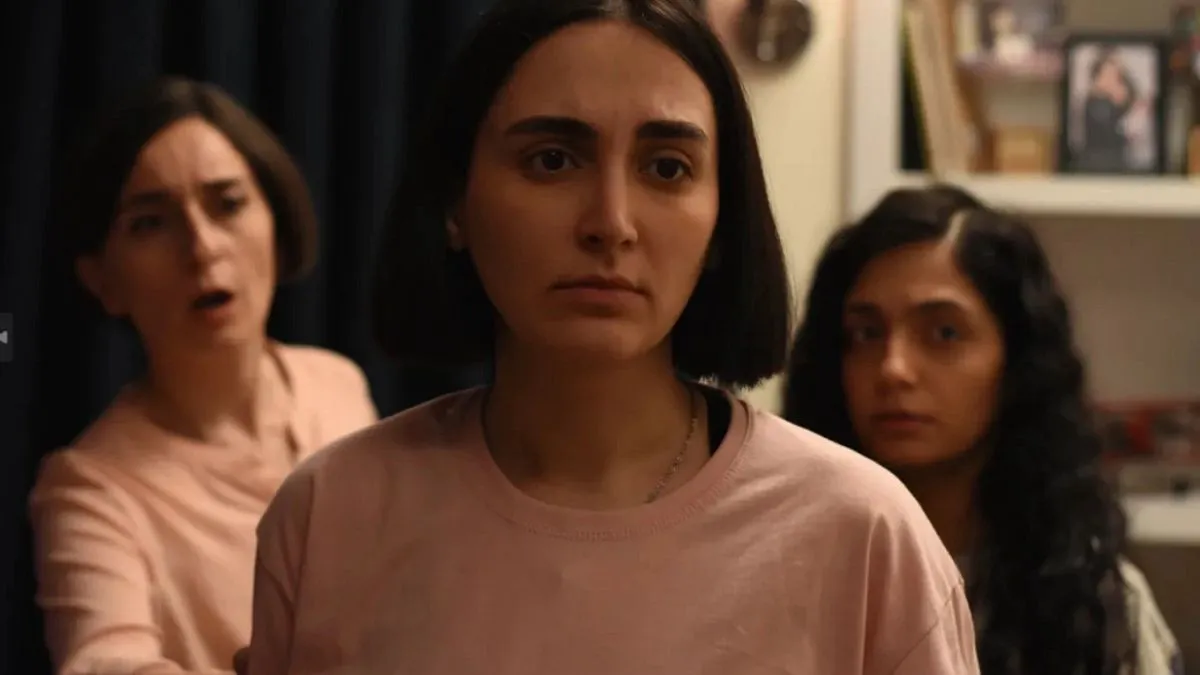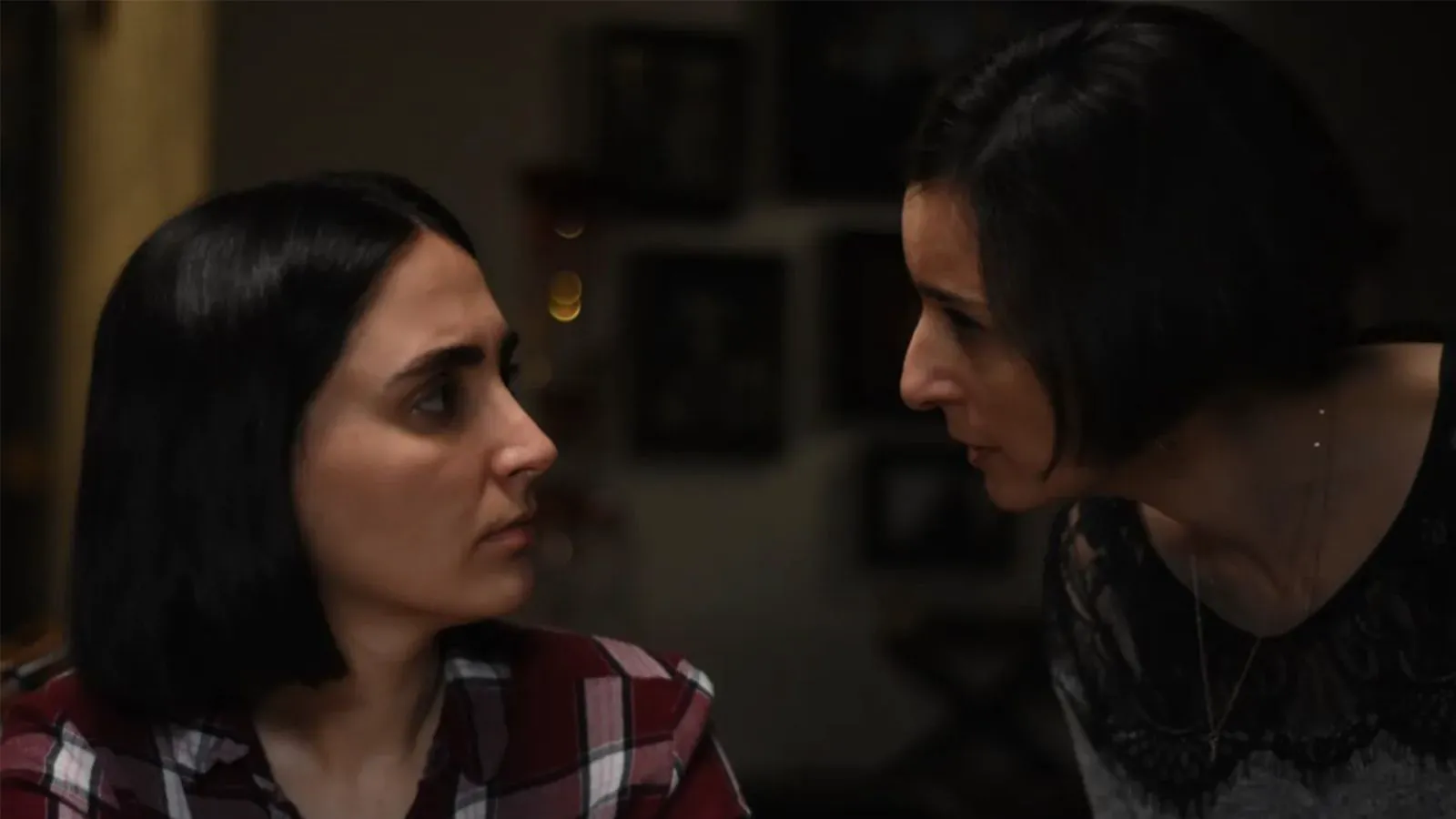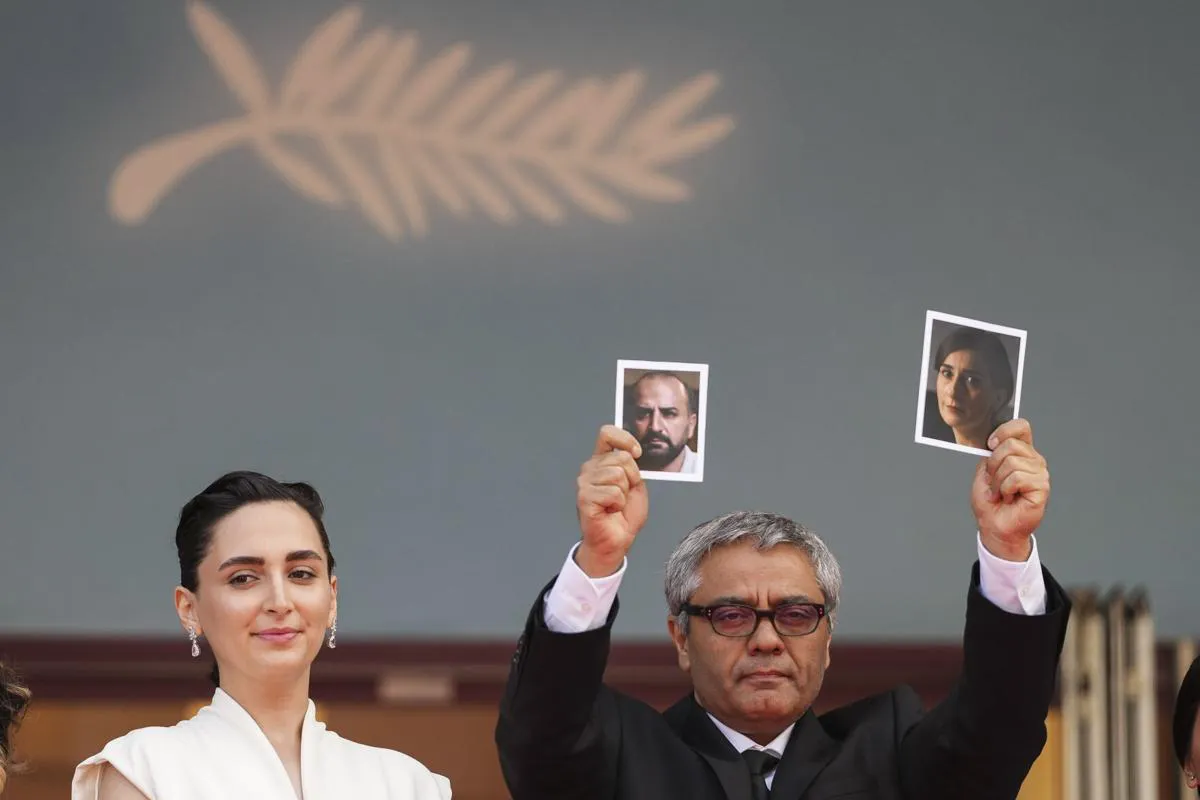The Seed of the Sacred Fig: A Family Portrait of Oppression in Iran
Iman (Missagh Zareh) has finally received a promotion, a stroke of luck that allows him, his wife Najmeh (Soheila Golestani), and their two daughters, Rezvan (Mahsa Rostami) and Sana (Setareh Maleki), to move into a three-bedroom apartment. However, Iman is tight-lipped about his profession: his new role as a judicial investigator involves daily scrutiny of evidence in severe criminal cases. Iman’s initial enthusiasm for contributing positively to society quickly fades when, on his first day, he’s ordered to sign a death warrant without delving into the details. Simultaneously, Iran is rocked by protests sparked by the police killing of Mahsa Amini, a young woman brutally beaten for not wearing a hijab in public. The harsh realities of state-sponsored terror also hit home for the two sisters when their close friend Sadaf (Niousha Akhshi) is shot in the face with pellets during a demonstration crackdown.

Mahsa Rostami as Razvan in a scene from “The Seed of the Sacred Fig”
Like many Iranian filmmakers, Mohammad Rasoulof is a vocal critic of the Iranian authorities, facing multiple arrests and imprisonment. The selection of “The Seed of the Sacred Fig” for the Cannes Film Festival led to an eight-year prison sentence for Rasoulof, but he managed to escape Iran and attend the premiere in France. Sadly, actors Soheila Golestani and Missagh Zareh were barred from leaving the country.
Censorship in Iran has forced filmmakers to develop a unique, allegorical language to address politically and socially sensitive issues. Jafar Panahi’s “Taxi,” filmed with a dashboard camera, exemplifies this ingenuity. In the film, Panahi seemingly drives through Tehran, picking up (un)familiar passengers who engage in conversations about important matters. Mohammad Rasoulof adopts a more direct approach. In his previous film, “There Is No Evil,” which won the Golden Bear at the 70th Berlin International Film Festival, he meticulously explored in four vignettes how the death penalty system relies on complicity, drawing countless silent individuals into a bloody machine, unwilling to acknowledge the perverse nature of their actions. In “The Seed of the Sacred Fig,” Rasoulof uses the fate of one family to illustrate how systemic violence seeps from the workplace into the home, escalating with each passing day.
The Erosion of Freedom Within Four Walls

Mahsa Rostami as Razvan in a scene from “The Seed of the Sacred Fig”
Initially, the daughters and mother, while covering their heads in public, favor light-colored fabrics and enjoy beauty treatments together at home, plucking eyebrows and painting nails. However, as the father becomes accustomed to his work routine and increasingly incorporates religious doctrines into his speech, the women’s behavior shifts. The mother turns to the Quran, dresses her daughters in dark hijabs, and disapproves of nail polish. The father’s service weapon, which he one day discovers missing from his bedside table, becomes a symbol of the pervasive state violence. This murder weapon, introduced in the opening scenes, casts a shadow over the apartment and its inhabitants, exposing their worst traits. The gun not only represents a thirst for power but also reveals fear. The owner of the firearm fears potential attacks and prepares to defend himself. Mohammad Rasoulof explains how the victim transforms into an aggressive predator through the character of Iman, who suspects everyone of theft. His character evolves from an ordinary family man into a ruthless dictator, driven by stress, paranoia, and fear of betrayal, seeing enemies everywhere and becoming merciless towards his loved ones. Rasoulof’s domestic drama wouldn’t succeed or transform into a thriller without the perfectly crafted psychological development of the characters, whose conflicts escalate in a spiral.
A Generational Divide Against a Patriarchal System

Director Mohammad Rasoulof at the Cannes Film Festival
The mother, caught between two fires, and the rebellious daughters, unafraid to voice their opinions, exemplify how Iran’s patriarchal and religious authority perpetrates femicide. The female relatives from different generations don’t always agree, but they all stand against the figure of the father, who believes that the women have rebelled not only against the country’s rulers but also against him personally. In terms of direct impact, “The Seed of the Sacred Fig” is reminiscent of Agnieszka Holland’s powerful political film “Green Border” from last year. However, while the Polish director employed various dramatic and visual techniques, the Iranian director’s style is minimalist and unadorned. His method of communicating with the audience is best seen in the scene where the eldest daughter, Rezvan, argues with her father about the demonstrations and television lies, articulating her position with a precise phrase: “I know the truth because I live in this country, and I have eyes.” In “The Seed of the Sacred Fig,” Rasoulof almost entirely avoids metaphorical and lyrical imagery, allowing the viewer to witness a chronicle of rebellion and coldly assess the most dramatic events reflected in the fates of many families.